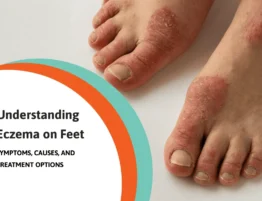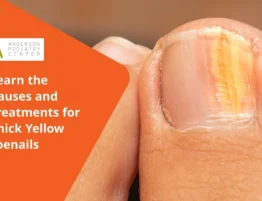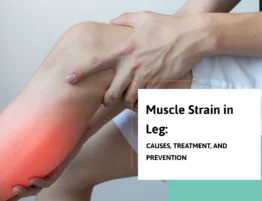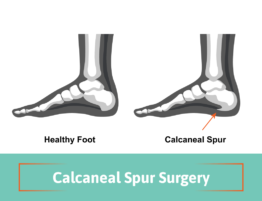

Understanding Why Numbness is More Dangerous Than Pain
For many of my diabetic patients, numbness develops so gradually they barely notice its progression. The sensation diminishes on such a slow gradient that they forget what normal foot sensitivity feels like. This adaptation becomes dangerous—when you can’t feel your feet, you can’t detect injuries, and if left untreated, these injuries can lead to amputation. The sobering reality is that amputation significantly shortens life expectancy for diabetic patients, with five-year mortality rates approaching 50% after major lower extremity amputation.
A numb foot is the most dangerous foot a diabetic can have.
As a podiatrist who has treated thousands of diabetic patients, I’ve witnessed how early intervention can dramatically change outcomes. Let me share two contrasting patient stories that illustrate why numbness should never be ignored.
Patient Stories of Foot Numbness: Two Different Paths
Patient One: Early Intervention Saves a Foot
Mrs. Johnson (name changed for privacy) visited our clinic with what she described as “feet that were killing her with chronic pain.” She had been taking Lyrica for her diabetic neuropathy, but it provided minimal relief. The burning, tingling pain had become unbearable, affecting her sleep and quality of life.
After a comprehensive evaluation, we discussed treatment options and agreed that nerve decompression surgery would be appropriate for her condition. However, life got busy, and she postponed the procedure. When she returned months later, I noticed the beginning of an ulcer on one toe—a dangerous development that made surgery an immediate priority. I explained how the procedure could not only alleviate her pain but potentially restore sensation, which would prevent future ulcers from developing unnoticed.
The results were remarkable. Almost immediately after surgery, her nerve pain subsided significantly, and she regained sensation in her toes. In her own words, “The foot you operated on feels so much warmer than the other foot.” The toe ulcer healed rapidly, and within weeks, we performed the same procedure on her other foot with equally successful results. Today, Mrs. Johnson has maintained both feet without complications, continues her regular diabetic foot care routine, and enjoys an active lifestyle.
Patient Two: Delayed Intervention Leads to Partial Loss
Mr. Thomas (name changed) had a different perspective on his numbness. To him, it “wasn’t that big a deal.” He could function adequately and sleep well. Yes, the numbness made walking more challenging, but he had adapted. By the time he sought treatment, he had already lost two toes to amputation.
The risk of amputating his foot and having the same issue affect his other foot is what drove him to come to our clinic. We performed nerve decompression surgery on the foot that had already undergone partial amputation. To his satisfaction, the results mirrored those of our first patient—increased warmth and restored sensation. While the surgery was successful in preventing further tissue loss, this case isn’t as positive as the first because permanent damage had already occurred. Had he sought treatment earlier, he might still have all his toes and better mobility.
The Medical Reality of Diabetic Neuropathy
Diabetic peripheral neuropathy affects approximately 50% of people with diabetes. The condition damages the nerves in your feet by:
- Restricting blood flow to the nerves
- Creating compression in natural nerve tunnels
- Causing biochemical changes that damage nerve fibers
This damage manifests in two primary ways:
- Painful neuropathy: Burning, tingling, electrical sensations
- Insensate neuropathy: Advancing numbness with decreased ability to feel potential damage
While painful neuropathy is distressing, it typically prompts patients to seek treatment. Numbness, however, often goes untreated until complications arise.
Why Numbness is More Dangerous Than Pain
Consider these contrasting outcomes:
- Pain = motivation to seek treatment = nerve restoration = no amputation = more active, healthy life
- Numbness = no motivation to seek help = delayed treatment = potential amputation = reduced mobility = shortened lifespan
Research indicates that individuals who undergo lower extremity amputation experience:
- Decreased mobility and independence
- Higher risk of depression
- Increased cardiovascular complications
- Reduced life expectancy by 5-10 years
Treatment Options for Diabetic Neuropathy
Modern podiatric medicine offers several approaches to address diabetic neuropathy:
- Nerve Decompression Surgery: Releasing compressed nerves to restore blood flow and sensation
- Medical Management: Medications to address nerve pain and improve circulation
- Advanced Wound Care: Specialized treatment for existing ulcers or injuries
- Preventative Foot Care: Regular check-ups and proper footwear
- Blood Sugar Control: Working with your primary physician to manage diabetes effectively
How to Assess Your Risk for Numbness due to Diabetic Neuropathy
Ask yourself these questions:
- Can you feel a light touch on all areas of your feet?
- Do you notice temperature changes on your feet?
- Have you noticed any changes in foot color or unexplained calluses?
- Do your feet feel unusually cold or warm?
- Have you had any painless injuries on your feet?
If you answered “no” to the first two questions or “yes” to the others, you should consult with a podiatrist specialized in diabetic foot care immediately.
Don’t Wait Until It’s Too Late
The choice becomes clear when you consider the options: either surgery to remove part of your foot after damage occurs, or proactive treatment to restore nerve function and preserve your foot. This crucial message needs to reach more diabetic patients before complications develop.
Remember, while you may not be able to control the development of neuropathy, you can control the outcome through early intervention.
Take Action Today
If you’re experiencing any signs of diabetic neuropathy—whether painful symptoms or concerning numbness—schedule a comprehensive foot evaluation with our team at Anderson Podiatry Center. Early intervention is your best defense against the silent threat of diabetic foot numbness.
Call us at Toll Free – 800-866-4620 or schedule your appointment today.
Dr. James Anderson, DPM, is a board-certified podiatrist specializing in diabetic foot care and nerve decompression surgery with over [X] years of experience helping patients maintain foot health and mobility.









Write a comment: